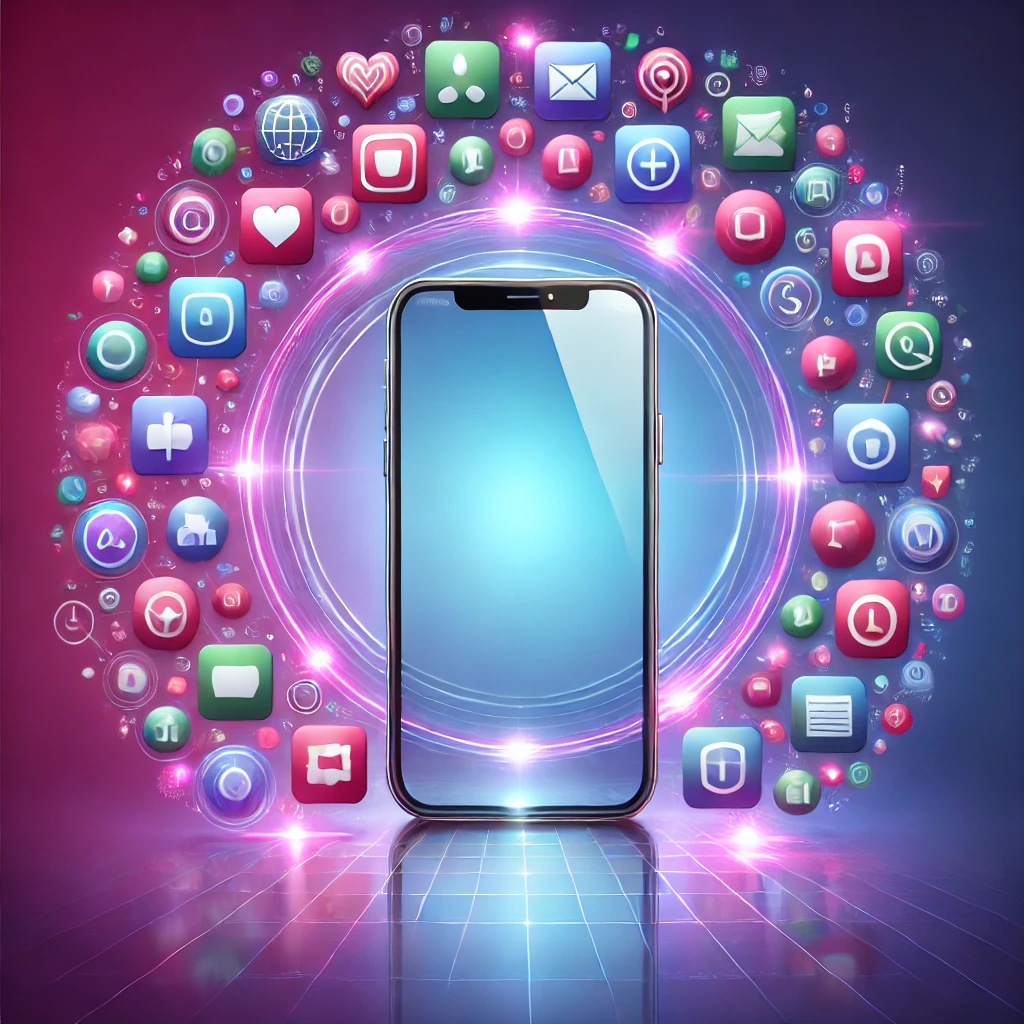Introduction
App promotion is the key to ensuring your app reaches its target audience and achieves success in a competitive marketplace. Effective promotion strategies help increase downloads, improve user engagement, and establish your app’s presence in the market.
What Is App Promotion?
App promotion encompasses all the activities aimed at increasing an app’s visibility and encouraging downloads. It includes paid and organic strategies, leveraging tools such as social media, app store optimization, and influencer collaborations.
Unlike development, which focuses on building the app, promotion focuses on making the app known to its potential users. This process is crucial for standing out in a crowded market and attracting users who can benefit from your app’s unique offerings.
– Focuses on increasing app visibility.
– Includes paid and organic strategies.
– Uses tools like ASO, social media, and influencers.
App Promotion vs. App Marketing: What Do They Mean?
While app promotion and app marketing are closely related, they have distinct purposes and approaches.
1. App Promotion:
– Short-term, campaign-focused activities. These are designed to create immediate visibility and drive downloads during specific timeframes such as app launches or major updates.
– Tactics include ad campaigns, social media pushes, and launch events, aiming to generate quick results and a buzz around the app.
2. App Marketing:
– A long-term strategy that involves building a brand and maintaining user relationships. This approach focuses on sustainable growth and user retention over time.
– Includes user feedback, updates, and ongoing communication through email campaigns or app notifications.
– App promotion is short-term, campaign-driven.
– App marketing focuses on long-term brand building.
– Both are essential for app success.
Top 20 Points to Consider While Promoting Your App
- Conduct market research to understand your audience. Know their preferences, behaviors, and needs. This information helps tailor your promotional strategies effectively.
- Optimize your app store listing with keywords and visuals. A well-optimized listing improves visibility and encourages downloads.
- Create a pre-launch campaign to build anticipation. Use teaser content and beta testing to engage early adopters.
- Leverage social media platforms to reach your target audience. Platforms like Instagram, Twitter, and LinkedIn are great for engaging potential users.
- Collaborate with influencers to expand reach. Influencers can introduce your app to a broader audience and build trust.
- Run targeted paid ad campaigns. Platforms like Google Ads or Facebook Ads help you reach specific user demographics.
- Invest in app store optimization (ASO). Optimize titles, descriptions, and screenshots for better discoverability.
- Build a landing page for your app. A dedicated website can provide additional details and serve as a conversion funnel.
- Offer promotions or discounts during the launch. Incentives can attract more downloads and encourage sharing.
- Encourage users to leave reviews and ratings. Positive reviews improve credibility and boost rankings.
- Use push notifications for re-engagement. Remind users about your app’s benefits without being intrusive.
- Partner with bloggers to review your app. Authentic reviews from trusted sources can drive traffic.
- Launch a referral program to incentivize sharing. Encourage existing users to invite their friends.
- Use email marketing to connect with users. Regular updates keep users informed and engaged.
- Create video content showcasing app features. Videos can effectively communicate your app’s value proposition.
- Monitor analytics to track user behavior. Insights from analytics help refine your strategies.
- Update your app regularly with new features. Regular updates show commitment and keep users interested.
- Attend industry events to promote your app. Networking at events can open doors to partnerships and collaborations.
- Focus on building a loyal user community. Engaged users are more likely to advocate for your app.
- Experiment with different promotion tactics and refine your strategy. Test new ideas and improve based on results.
10 Don’ts to Consider While Promoting Your App
- Don’t neglect your app’s performance and bugs. A flawless user experience is crucial for retaining users and attracting positive reviews.
- Don’t rely solely on paid ads. Diversify your promotion strategies to include organic methods.
- Don’t ignore user feedback. Address complaints and suggestions to improve your app and user satisfaction.
- Don’t spam users with push notifications. Overuse can lead to annoyance and app uninstalls.
- Don’t overpromise features you can’t deliver. Be honest about your app’s capabilities to maintain trust.
- Don’t ignore analytics and user data. Use insights to understand user behavior and optimize your campaigns.
- Don’t neglect app store optimization (ASO). A poorly optimized listing can hinder discoverability and downloads.
- Don’t ignore competitors’ strategies. Learn from their successes and mistakes to refine your approach.
- Don’t forget to engage with your users. Active engagement fosters loyalty and long-term retention.
- Don’t assume one strategy fits all audiences. Tailor your campaigns to suit different user segments and preferences.
Closing Note
Promoting an app effectively requires a blend of strategy, creativity, and ongoing efforts. By understanding the nuances between promotion and marketing, focusing on essential best practices, and avoiding common pitfalls, you can ensure your app achieves sustained success. Hire our app marketing agency to craft and execute a winning promotion strategy tailored to your app’s needs. Contact us today!

